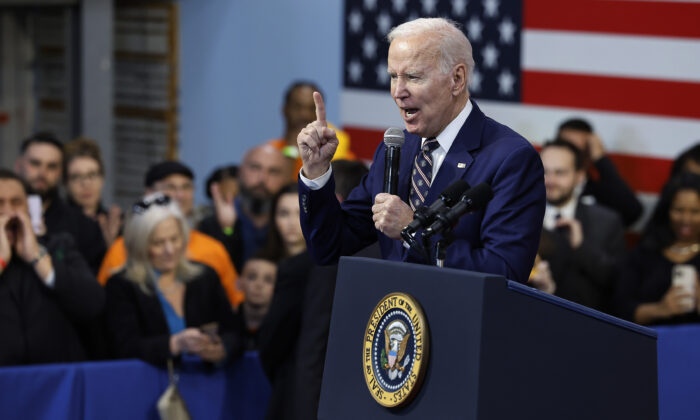The Biden Administration is cracking down on more household appliances in its latest effort to push its radical climate change agenda.
On Friday, the Department of Energy (DOE) finalized a slew of new energy efficiency standards for residential refrigerators and freezers and proposed standards for commercial fans and blowers.
The agency claimed that limiting these everyday appliances would eliminate roughly 420 million metric tons of “dangerous carbon dioxide emissions” over the next three decades, saving households and businesses $5 billion a year on utility bills.
“Today’s announcement is a testament to the Biden-Harris Administration’s commitment to lowering utility costs for working families, which is helping to simultaneously strengthen energy independence and combat the climate crisis,” Energy Secretary Jennifer Granholm said.
This is the Biden Administration’s latest move intended to phase out fossil fuel-powered appliances and instead often replace them with electric versions.
According to the DOE, compliance with the finalized fridge and freezer standards will be required starting in either 2029 or 2030. The regulations “follow the lead” from versions already in place in California.
The standards targeting fans and blowers will be the first of its kind. The agency claims this will cut carbon dioxide emissions by 318 million metric tons in the next 30 years.
The new regulations will come with a hefty price tag for Americans— who, thanks to President Joe Biden, can barely afford to pay bills due to record-breaking inflation, let alone replace their home appliances.
Ben Lieberman, a senior fellow at the Competitive Enterprise Institute, told Fox News Digital that the new efficiency standards could harm product performance, saying that the new dishwasher standards have led to cycles taking as much as twice as long to finish.
He also criticized the Biden Administration for not allowing Americans to make these choices independently.
“Consumers are perfectly capable of making these decisions on their own, including consumers who want to buy extra efficient refrigerators or other models,” he said. “What these standards do is they force that choice on everyone, whether it makes sense for them or not. And we know from history that, in some cases, these standards raise the upfront cost more than you’re likely to earn back in the form of energy savings.

